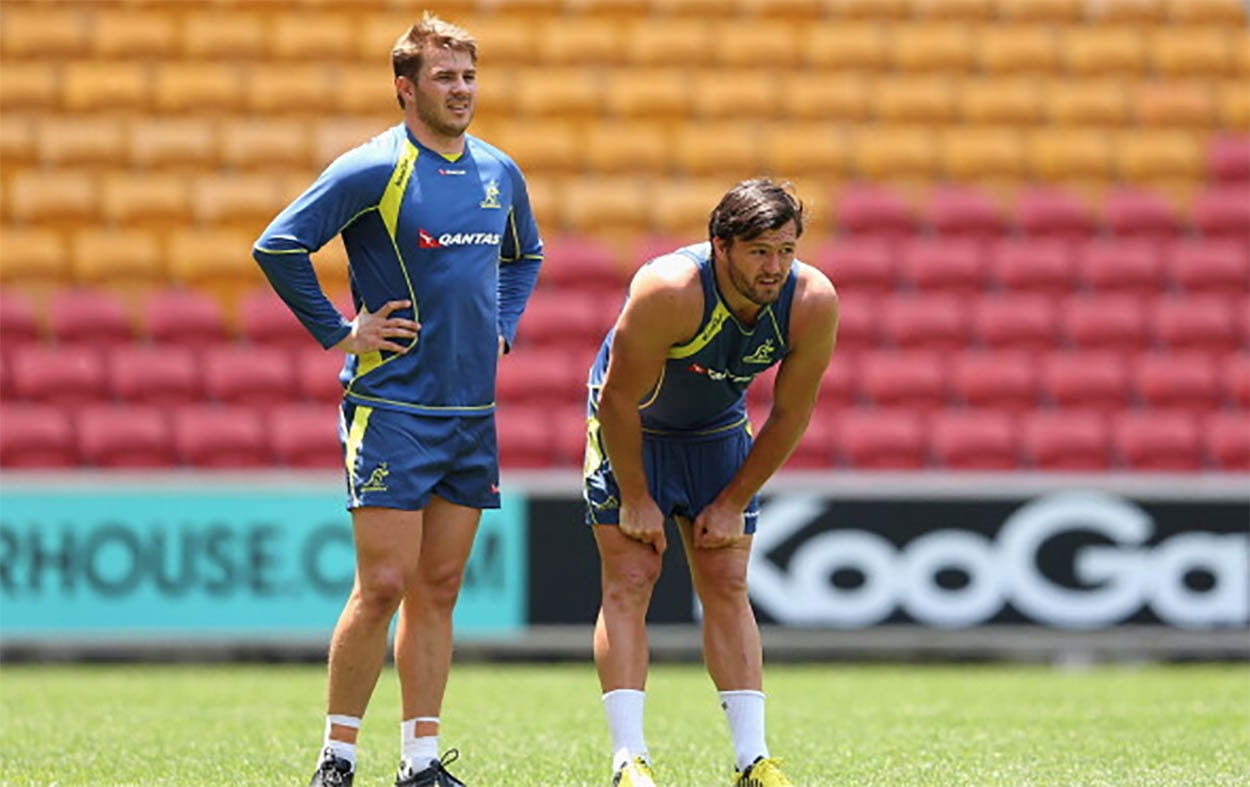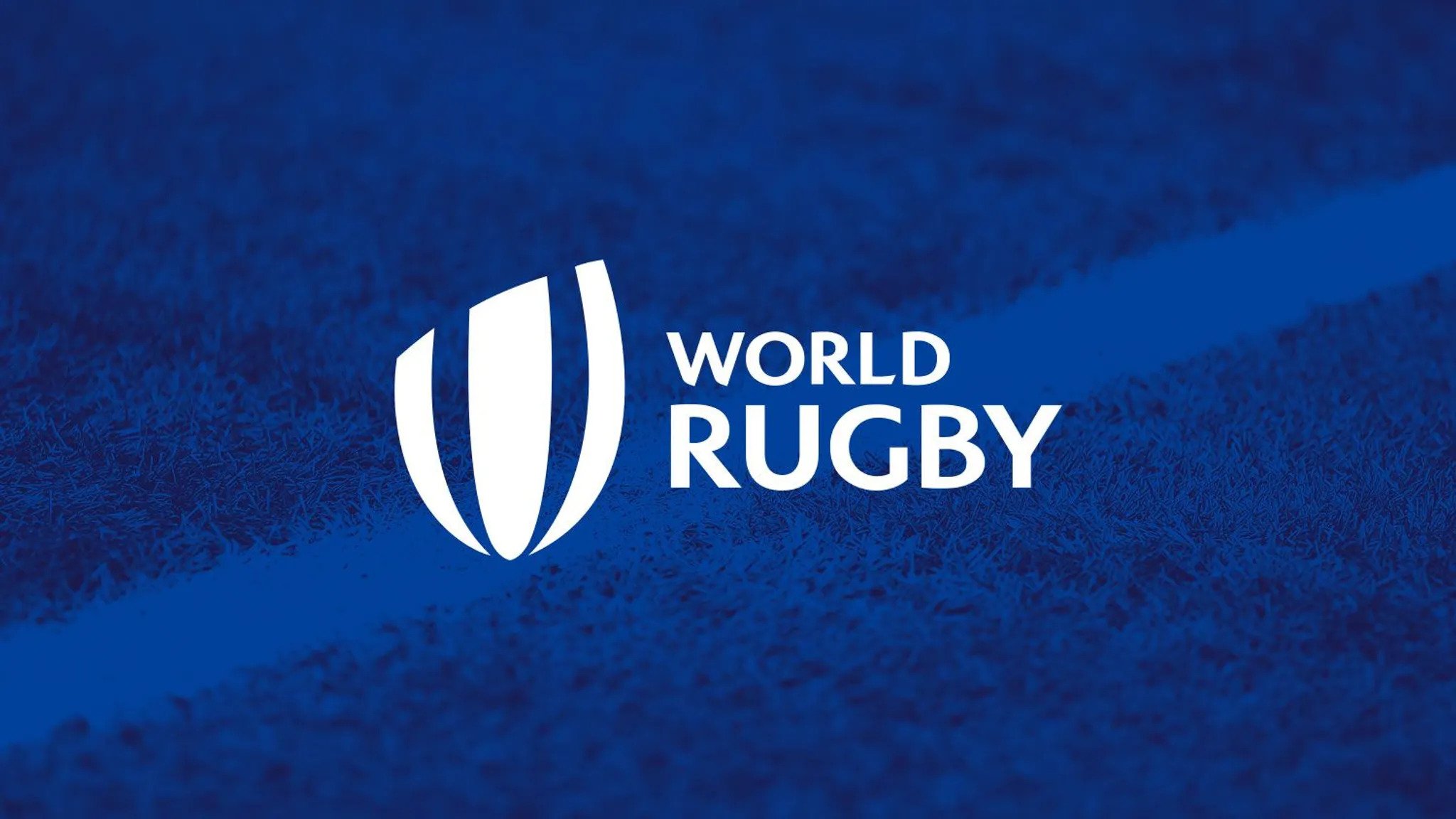Major League Rugby
Mitchell Set to Come Out of Retirement
Former Wallaby star Drew Mitchell is set to come out of retirement following nearly three years out of the game

Former Wallabies ace Drew Mitchell is set to come out of retirement and play in the MLR with Rugby United New York according to RugbyPass.
The report claims that Mitchell, who has been out of the game since the end of the 2016/17 season, when he called time on his career, finishing a glittering career with Toulon.
However, it is now thought that the 34-year-old will link up with the American outfit ahead of the upcoming season which they kick-off against the New England Free Jacks in Las Vegas on February 9th.
If the move does go through he will join former French star Mathieu Bastareaud on the team’s books and join the growing contingent of players heading stateside.
Mitchell will bring a huge amount of experience to the side having spent time with Super Rugby side’s the Waratahs, the Force and the Reds, as well as his time in France. While on the international stage he managed to notch up 34 tries in 71 test caps.
The former star was supposed to be part of Fox Sports TV coverage heading into the new Super Rugby season, but was axed last week.
Meanwhile, RugbyPass are also claiming that the New York-based team are already lining-up players for next season and are reportedly interested in former England captain Chris Robshaw and former Ireland livewire Simon Zebo, who is currently playing a starring role for Racing 92.
Mitchell would be a huge boost for not only the team but the league as a whole, while if they can pull off those moves next season it would be more great business as interest grows in the game in the US.
6 Nations
World Rugby to introduce contact training restrictions

World Rugby and International Rugby Players (IRP) have published new contact training load guidance aimed at reducing injury risk and supporting short and long-term player welfare. The guidance is being supported by national players’ associations, national unions, international and domestic competitions, top coaches and clubs.
Earlier this year, World Rugby unveiled a transformational six-point plan aiming to cement rugby as the most progressive sport on player welfare. These new best-practice guidelines focus on the intensity and frequency of contact training to which professional rugby players should be exposed and have been shaped by consultation with players and coaches as well as leading medical, conditioning and scientific experts.
While the incidence of training injuries is low relative to that of matches, the volume of training performed means that a relatively high proportion (35-40 per cent) of all injuries during a season occur during training, with the majority of these being soft tissue injuries. Since the training environment is highly controllable, the guidelines have been developed to reduce injury risk and cumulative contact load to the lowest possible levels that still allow for adequate player conditioning and technical preparation.
Global study
The guidelines are based on a global study undertaken by IRP of almost 600 players participating across 18 elite men’s and women’s competitions, and a comprehensive review of the latest injury data. This reveals that training patterns vary across competitions, with an average of 21 minutes per week of full contact training and an average total contact load of 118 minutes per week. A more measured and consistent approach to training will help manage the contact load for players, especially those moving between club and national training environments. The research supports minimising contact load in training, in order that players can be prepared to perform but avoid an elevated injury risk at the same time. The guidelines aim to help strike that balance.
New ‘best practice’ training contact guidelines
World Rugby and International Rugby Players’ new framework [https://www.world.rugby/the-game/player-welfare/medical/contact-load] sets out clear and acceptable contact guidelines for training sessions, aiming to further inform coaches – and players – of best practice for reducing injury risk and optimising match preparation in season. The guidance covers the whole spectrum of contact training types, considering volume, intensity, frequency and predictability of contact, as well as the optimal structure of sessions across the typical training week, including crucial recovery and rest periods.
Recommended contact training limits for the professional game are:
- Full contact training: maximum of 15 minutes per week across a maximum of two days per week with Mondays and Fridays comprising zero full contact training to allow for recovery and preparation
- Controlled contact training: maximum of 40 minutes per week
- Live set piece training: maximum of 30 minutes set piece training per week is advised
The guidelines, which also consider reducing the overall load for players of particular age, maturity and injury profile (in line with the risk factors and load guidance published in 2019), will feature in the men’s and women’s Rugby World Cup player welfare standards.
Instrumented mouthguard research programme to inform effectiveness
World Rugby is partnering with elite teams to measure the ‘real life’ effect of these guidelines (in training and matches) and assess the mechanism, incidence and intensity of head impact events using the Prevent Biometics market-leading instrumented mouthguard technology and video analysis to monitor implementation and measure outcomes.
The technology, the same employed in the ground-breaking Otago Rugby Head Impact Detection Study, will deliver the biggest ever comparable bank of head impact data in the sport with more than 1,000 participants across the men’s and women’s elite, community and age-grade levels. The teams that have signed up so far are multiple Champions Cup winners Leinster, French powerhouse Clermont Auvergne and Benetton Treviso while discussions are ongoing with several other men’s and women’s teams across a range of competitions.
World Rugby Chief Executive Alan Gilpin said: “This important body of work reflects our ambition to advance welfare for players at all levels of the game. Designed by experts, these guidelines are based on the largest study of contact training in the sport, developed by some of the best rugby, performance and medical minds in the game. We believe that by moderating overall training load on an individualised basis, including contact in season, it is possible to enhance both injury-prevention and performance outcomes, which is good for players, coaches and fans.”
World Rugby Director of Rugby and High Performance and former Ireland coach Joe Schmidt added: “Training has increasingly played an important role in injury-prevention as well as performance. While there is a lot less full contact training than many people might imagine, it is our hope that having a central set of guidelines will further inform players and coaches of key considerations for any contact that is done during training.
“These new guidelines, developed by leading experts and supported by the game, are by necessity a work in progress and will be monitored and further researched to understand the positive impact on player welfare. We are encouraged by the response that we have received so far.
“We recognise that community level rugby can be an almost entirely different sport in terms of fitness levels, resources and how players can be expected to train, but the guidelines can be applied at many levels, especially the planning, purpose and monitoring of any contact in training.”
International Rugby Players Chief Executive Omar Hassanein said the guidelines are being welcomed by players: “From an International Rugby Players’ perspective, this project represents a significant and very relevant piece of work relating to contact load. We’ve worked closely with our member bodies in gathering approximately 600 responses from across the globe, allowing us to have sufficient data to then be assessed by industry experts. The processing of this data has led to some quite specific recommendations which are designed to protect our players from injuries relating to excessive contact load. We will continue to work with World Rugby as we monitor the progress of these recommendations and undertake further research in this area.”
Leinster coach Stuart Lancaster, who was involved in reviewing the study and advising the development of the guidelines, said: “We have a responsibility to make the game as safe as possible for all our players. For coaches, optimising training plays a significant role in achieving that objective. It is important that we do not overdo contact load across the week in order that players are fresh, injury-free and ready for match days. These guidelines provide a practical and impactful approach to this central area of player preparation and management.”
Ireland international and IRP Head of Strategic Projects and Research Sene Naoupu said: “While this is the first step of the implementation and monitoring process, it is an incredible outcome that shows just how much players care about this area. It also provides a foundation to review and determine future direction of implementation across the game, within an evidence-based injury-prevention programme for performance and welfare.”
World Rugby is also progressing a wide-ranging study of the impact of replacements on injury risk in the sport with the University of Bath in England, a ground-breaking study into the frequency and nature of head impacts in community rugby in partnership with the Otago Rugby Union, University of Otago and New Zealand Rugby, and further research specific to the professional women’s game. All of these priority activities will inform the decisions the sport makes to advance welfare for players at all levels and stages.
Major League Rugby
Major League Scraps Remainder of Season
Major League Rugby have confirmed that the rest of their season will no longer take place

Major League Rugby have announced that the remainder of the season has been cancelled due to the outbreak of coronavirus.
The 2020 season was heading into its sixth round before a 30-day break was announced recently, but after guidelines set by the Centers for Disease Control and Prevention MLR commissioner George Killebrew has now confirmed that the league will not return until next year.
“On behalf of MLR and all of our teams, I’m saddened to announce that the remainder of the 2020 season is cancelled. We believe it is ultimately the correct decision as we factored in health and safety risks for all parties. I want to ensure our fans that there is no doubt MLR will be back in 2021 and will emerge bigger and better than ever before. We will be using this time as an opportunity to grow all aspects of MLR and we’re excited to continue this journey into 2021, and for many years to come,” he said.
With the season being called off it remains to be seen what star internationals such as Mathieu Bastareaud and Ma’a Nonu will do having moved over to the US only this season.
Nonu’s San Diego Legion were the only team undefeated following the opening five games and are last year’s champions. However, they will now have to try and defend their title next season.
Major League Rugby
Saracens Lock Latest to Join MLR
Another player has decided to make a move over to the US for a taste of Major League Rugby action

Saracens lock Dominic Day has left the Premiership side to join San Diego Legion in the Major League Rugby on a two-year deal.
The 33-year-old has been at Allianz Park for two years, making 32 appearances and has been influential in helping the club’s young talent.
The former Scarlets and Bath lock is thankful for the chances he has been given at Sarries.
“It’s been an amazing two years. I’ve met a lot of really good people and have been a part of a team which has won four trophies since I’ve been here. It’s been more than I could ever have asked for. Saracens are a massive club and pride themselves on being up there and winning things; being part of that has been amazing,” he said.
As well as his efforts on the pitch and with the youth development he has also set up fourfive CBD with fellow lock George Kruis which is a brand that helps athletes maintain an active lifestyle.
Saracens director of rugby Mark McCall thanked Day for his time at the club and wished him luck in the US.
“Dom has been a brilliant person to have at the club over the last two seasons. In particular, he has played a key role in mentoring some of our younger players both on and off the field. We wish him and Nadia well as they embark on this exciting new challenge and will always be grateful to him for the huge contribution he has made at our club,” he said.
Day will now link-up with former England international Steffon Armitage, who joined San Diego Legion last week.













